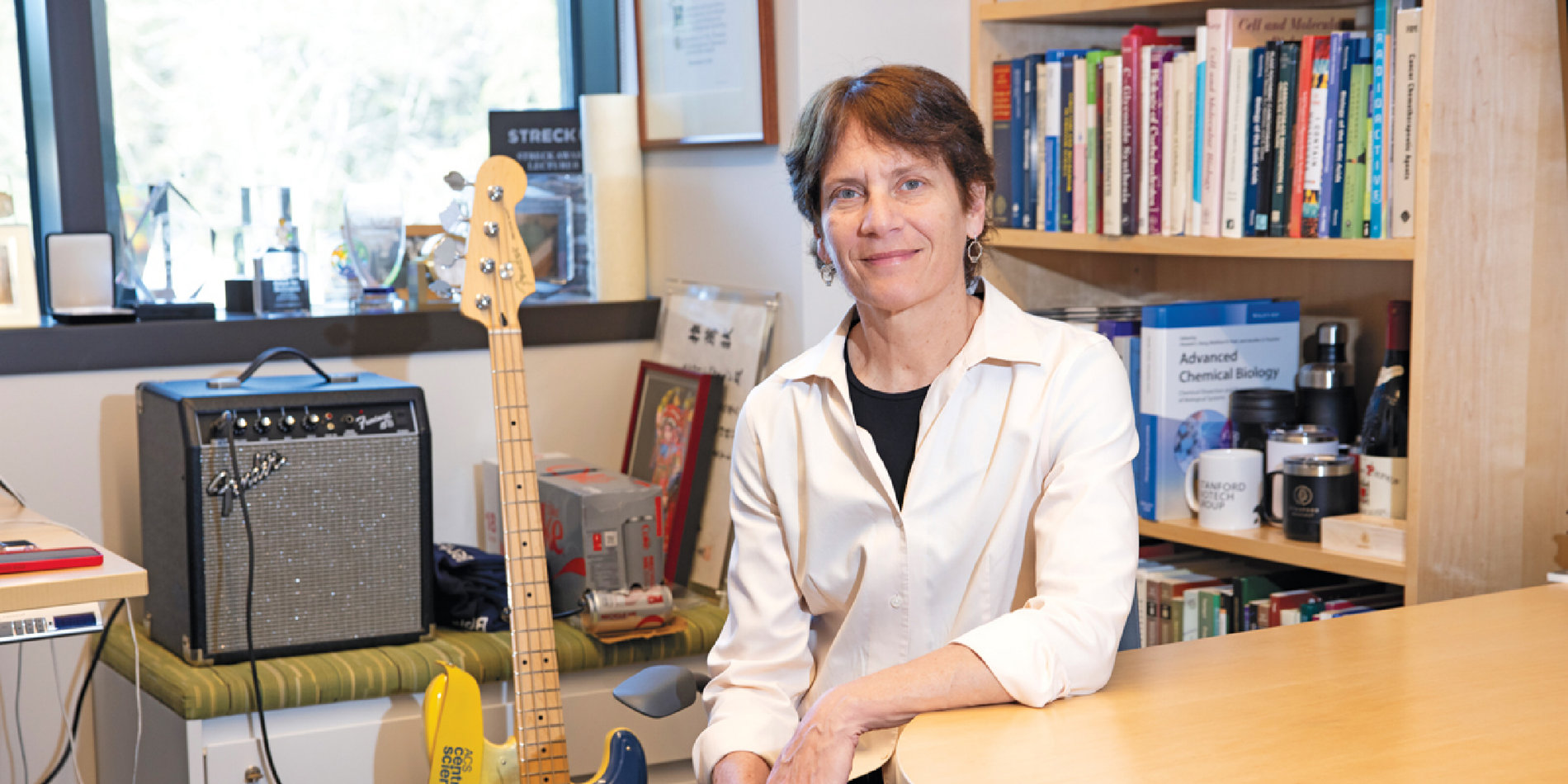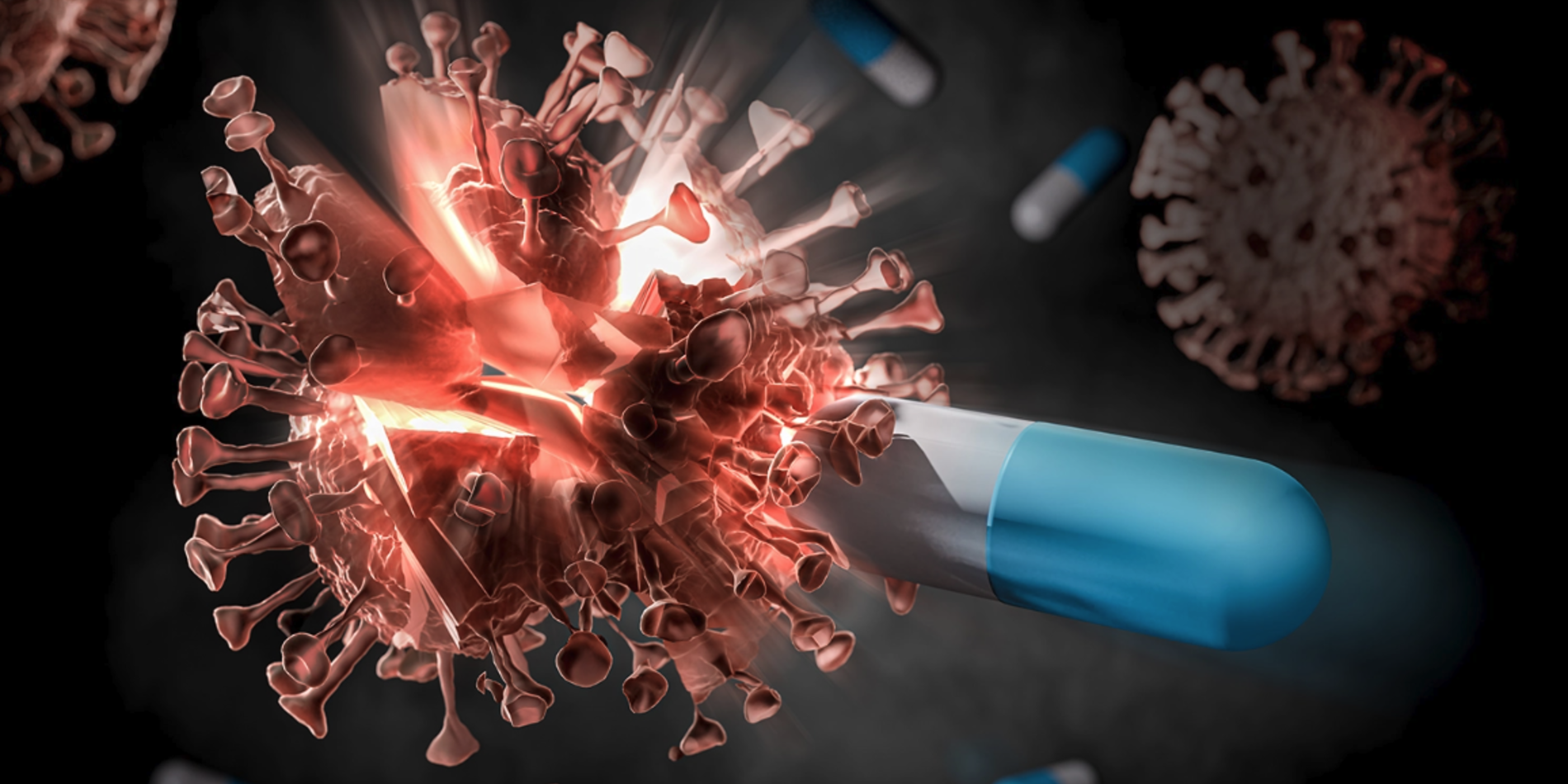Laura Dassama zooms in to see the molecular basis of disease
Laura Dassama came to Stanford last September in part because she wanted to join Stanford ChEM-H. Since she was an undergraduate at Temple University, she has understood that she wants to study human health and disease through the lens of molecules and their interactions with each other. Case in point: Dassama and her lab study antibiotic resistance, focusing on protein molecules called efflux pumps that drive antibiotics and other molecules out of bacteria. Targeting those pumps, Dassama believes, may help combat what has now become a major public health problem.

Here, Dassama talks about what it’s like to be a new assistant professor, what it means to think like a chemist when studying human health and disease, and what drew her to Stanford.
What has it been like getting used to Stanford?
It has been interesting. I would say it's not simply getting used to Stanford, it’s getting used to this new role. Prior to starting my lab, there was always someone else who ran the labs I had worked in, and I was only focused on my projects, which were a small part of the lab’s focus. Now here, not only am I in charge of the lab’s focus and making sure everyone's science is running smoothly, I am also recruiting and managing people. Running a lab is very much like running a small business. One has to think about the finances, to make sure everything and everyone is healthy, that our ideas are good, and that we are investing time and energy in the right projects.
But the great thing about being here now is that there are quite a few other people who started around the same time as me, not in chemistry but in ChEM-H. There is Jon Long, who started a few months before I did, and there are other junior and senior faculty who are willing to offer advice and help guide me.
When you were growing up, you wanted to become a doctor. Why was that, and what prompted you to change direction?
I thought that was my only option, honestly. I had a curiosity about diseases and why people got sick and how medications that were applied helped to make people feel better. And so at the time, it may still be the case in Liberia, if you were interested in science and math and you happened to be good at it, your only career option was to become a physician. It wasn't until I went to college and told some of my professors what I actually wanted to do that I realized that there can be a career in research. If what you really want to do is understand how drugs work, you don't necessarily have to work in a clinic. You can go to the lab and discover the molecular bases for diseases and the impact of medications.
It sounds like this was something of a revelation to you.
It was. I had no idea prior to that. So, at 20 years old I realized that there could be a career in research, and when I went into the lab I realized that it was exactly what I wanted to do. I'm glad I did not go to medical school and went to graduate school instead.
What is it that drew you specifically to chemistry?
I was interested in human health problems, but I really wanted to understand the nitty gritty details. And I think chemistry gave me satisfaction because it was focused on molecular level understanding of these very complex problems and systems, and I thought, "that's what I need to be doing." I enjoyed being focused on understanding things at the molecular level.
Even though I never officially got a degree in chemistry – my bachelor's is in biochemistry because I wanted to maintain my interest in biological applications – I worked in a chemistry labs. Most of the tools I use are tools from chemistry and physics, and so even though none of my degrees are in chemistry, my work is chemistry, and I do think like a chemist.
What does it mean to think like a chemist?
To me, it is as if I see the world in terms of its molecules. I am fascinated by the molecular makeup of things. When I think of a human disease, I do not think of only the physiological description of the disease. I always think of what drives it. I am curious about the molecules that are involved, and how they work. Perhaps if we identified them and understood how they work, we could alter their workings.
You came to Stanford in part to be part of ChEM-H. Why was ChEM-H important to you?
Although I am a chemist, the application of my work is entirely in biology. Prior to this point I had always worked in chemistry departments and sometimes felt a little bit like an outlier. I would feel a bit apologetic about it, needing to say, “I need these tools to grow cells. I need a sterile environment.” Those are not things that chemists typically need. And so even though I knew I would be at home in a chemistry department, when I realized that ChEM-H would give me this additional dimension where I was free to pursue problems in biology, I thought it was a perfect fit.



